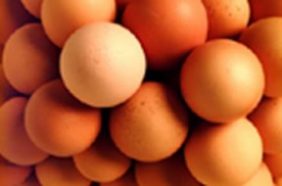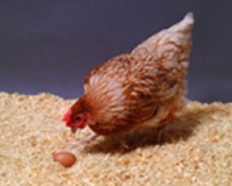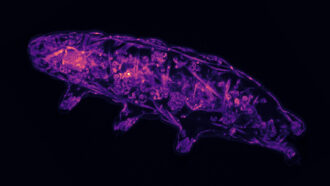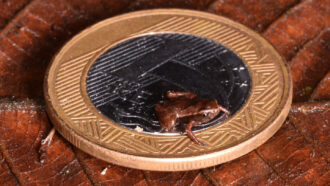Chicken eggs as drug factories
Researchers have created chickens that produce useful drugs in their eggs.
By Emily Sohn
Medicine comes in lots of different packages. Painkillers in a tablet can make your headache go away. Antibiotic cream from a tube can prevent your cuts from becoming infected. But can medicine come packaged in chicken eggs?
A team of scientists from Scotland says yes. They’ve engineered special chickens that lay eggs with disease-treating drugs inside.
 |
|
These eggs come from chickens that have been engineered to produce certain drugs inside their egg whites.
|
| Roslin Institute |
These drugs are made of molecules called proteins. Animals make thousands of proteins—they’re the main ingredient in skin, hair, milk, and meat. Since animals can make proteins easily, they’re good candidates for making protein drugs.
Researchers have already made cows, sheep, and goats that pump out protein drugs in their milk. But chickens are cheaper to take care of, need less room, and grow faster than these other animals. Those qualities could make chickens a better choice to become living drug factories, says Simon Lillico of the Roslin Institute near Edinburgh, Scotland.
Lillico and a team of researchers changed chickens’ DNA—the code that tells cells how to make proteins—so that the birds’ cells made two protein drugs. One drug can treat skin cancer, and the other treats a nerve disease called multiple sclerosis.
The scientists altered the chickens’ DNA so that the birds made these drugs only in their egg whites. This protects the chickens’ bodies from the drugs’ possible harmful effects and makes it easy for scientists to collect the drugs.
 |
|
This special type of chicken produces eggs that contain useful drugs.
|
| Roslin Institute |
These special chickens can pass on their drug-laying abilities to their chicks. So far, the Scottish researchers have bred five generations of drug-producing birds.
The scientists need to improve these chickens before they roost in drug companies’ labs. The birds don’t make enough drugs to treat people yet. But once the researchers perfect their technique, you might eventually take your medicine sunny-side up.







